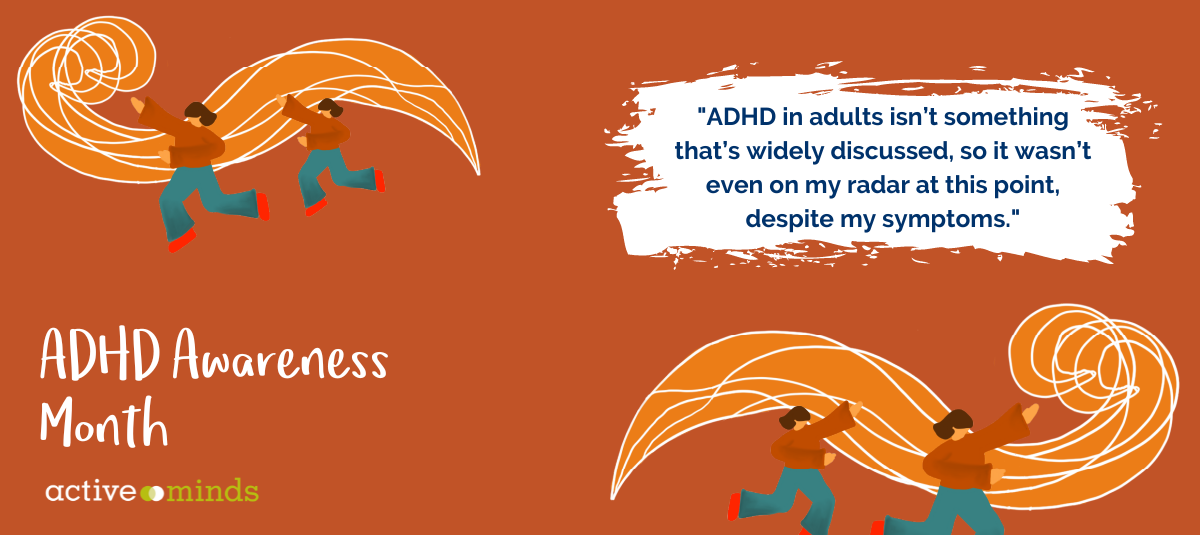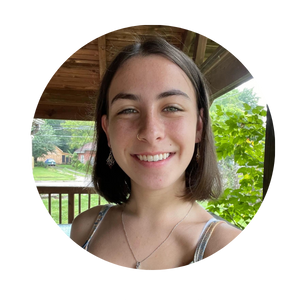I always loved learning and strived to be a high achiever. I did well in school, got along with others, and teachers seemed to like me. However, once I started college, there was a major shift. It became harder and harder for me to complete assignments on time. I felt I couldn’t reach out to my professors and explain because I didn’t think I had a good enough reason as to why I wasn’t turning in work. I stopped going to class. I felt worse about myself because I wasn’t able to be as productive as I used to be. ADHD in adults isn’t something that’s widely discussed, so it wasn’t even on my radar at this point, despite my symptoms. I continued to struggle and began to seek answers anywhere that I felt could make sense.
At first, I thought it was due to my depression. I had been diagnosed with depression and anxiety at 16. I tried a variety of medicines – some more helpful than others. I started therapy and that helped a lot, but I still struggled to keep up with my schoolwork. No matter how effective the medicine, I continued to lack motivation and the ability to focus and function on a daily basis. I wouldn’t remember to do laundry, or grocery shop, and I definitely was not keeping up with all the homework I needed to do.
I started to think back to when I was younger. What had changed since then? I had managed school fine while coping with depression and anxiety, so I wondered if maybe the issue was something different altogether. I knew I had always done well in school, but looking back, I realized it would often take me hours to finish a single assignment. Not because I didn’t understand the material, but because I could read pages and pages of a textbook without absorbing anything, or because I would become easily distracted and lose focus.
At my next medication check, I talked with my psychiatrist about the possibility of me having ADHD, or attention-deficit/hyperactivity disorder. He gave me some quizzes to complete and the results showed that while I was not the hyperactive subtype, I fit the criteria for the inactive subtype. I am now being treated for ADHD as an adult and I feel like I can finally function while managing my symptoms. There are still days that I struggle and there are still days when I’m depressed and/or anxious, but I feel so much better overall.
I think many people think of ADHD in a stereotypical way of being hyperactive; I know that I did, and because of this I never saw myself as fitting the label of having ADHD. ADHD is also commonly underdiagnosed in those who present as a woman. Depression and anxiety can also mask the symptoms of ADHD. In my case, all three factors (fitting under the inactive subtype, being a woman, and having depression/anxiety) contributed to my late diagnosis.
I hope that the more we can share different experiences with mental illnesses, the more we challenge stereotypes about mental health and ensure everyone has a path to care. ADHD in adults isn’t always given the same attention as it is when it presents in children, but the symptoms can nonetheless be impairing in everyday life. If you’re struggling with anything I mentioned, or have your own symptoms that are hindering your life, I encourage you to seek help when possible.




